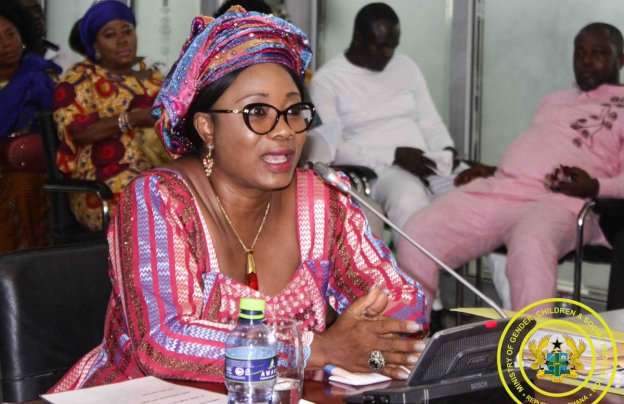Adam Mutawakilu[/caption]
The minority in parliament wants government blamed for the increments in fuel prices, which have led to 10 percent upward adjustment in transport fares across the country.
According to the minority spokesperson on energy, Adam Mutawakilu, government has shirked its responsibility and deliberately allowing the fuel prices to go up as Ghanaians get impoverished.
He cited, for instance, that the Special Petroleum Tax has outlived its relevance and should have been scrapped by the government if it wanted to check pricing.
The Special Petroleum Tax (Amendment) Bill 2018 was passed by parliament in February, reducing the tax component of 17.5% by 2.5%. READ MORE
The minority and some civil society groups were not satisfied by the gesture and insisted on a total scrap.
Following the increment in lorry fares on Monday June 4, 2018, the minority National Democratic Congress in Parliament reignited the pressure, accusing the government of lying its way to power.
“The Special Petroleum Tax purpose is not relevant at this point in time, and therefore government should willingly take it off to relieve the burden on the people if they truly care for Ghanaians; if they want to prove that they didn’t deceive Ghanaians to win votes, this is the time to act, and they must act now.”
READ ALSO: Scrap Special Petroleum Tax now – Former Energy Minister
Adam Mutawakilu insisted that the current increment in transport fares could have been avoided.
He said with government’s disinterest in putting in place measures to reduce petroleum prices, “we the minority believe that government just want to extort [from] the people and make them more impoverished”.
The minority spokesperson said his side is “unhappy” by the way and manner the Akufo-Addo-led government is “treating Ghanaians”.
Under former President Kufuor, fuel prices went up by 8.9 cedis, while 8 years of Mills-Mahama presidency recorded 6 cedis upward adjustment, he analysed, under Akufo-Addo’s one and half years “10 cedis has been added”.
He rejected government’s defence that increment in petroleum prices in the country is influenced by international oil prices.
Mutawakilu argued that taxes constitute more than 40% of the cost of petroleum products in Ghana.
[caption id="attachment_45187" align="aligncenter" width="564"] The new fares took effect on June 1[/caption]
57 dollars threshold
Mr. Mutawakilu who is also the MP for Damango explained that the Special Petroleum Tax was introduced in 2014 to meet the gap in oil revenue when international price is low.
But the moment the international oil price crosses 57 dollars per barrel that Act became irrelevant, he stated, because “then we are making surpluses, we are getting more money from the oil that is produced here than what has been captured in the budget.”
He noted that what is accrued from the tax does not match up to the 1.88 billion cedis lost as a result of petroleum revenue leakage.
He therefore demanded that government set up an independent investigative body to find out how the petroleum revenue leaked to the tune of 1.88 billion cedis.
Mutawakilu was certain an NDC government would have abolished the Special Petroleum tax completely to ease the problem of the citizenry.
By Isaac Essel | 3news.com | Ghana]]>
The new fares took effect on June 1[/caption]
57 dollars threshold
Mr. Mutawakilu who is also the MP for Damango explained that the Special Petroleum Tax was introduced in 2014 to meet the gap in oil revenue when international price is low.
But the moment the international oil price crosses 57 dollars per barrel that Act became irrelevant, he stated, because “then we are making surpluses, we are getting more money from the oil that is produced here than what has been captured in the budget.”
He noted that what is accrued from the tax does not match up to the 1.88 billion cedis lost as a result of petroleum revenue leakage.
He therefore demanded that government set up an independent investigative body to find out how the petroleum revenue leaked to the tune of 1.88 billion cedis.
Mutawakilu was certain an NDC government would have abolished the Special Petroleum tax completely to ease the problem of the citizenry.
By Isaac Essel | 3news.com | Ghana]]>
Increment in fares: Govt just extorting from impoverished Ghanaians – MPs
Reading Time: 3 mins read
Recent Posts
- Cynthia Morrison faces jail term over contempt charges
- Survey: NPP’s Chris Arthur projected to win Agona West by landslide
- President Jerry John Rawlings – Four Years On
- Friday, November 8 not a public holiday – Interior Ministry
- Tragic: Speeding NDC vehicle kills the only child of a mother at North Dayi
- Pay NABCO trainees if you care about Ghanaian youth – Mahama tells Bawumia
- Suspend planned strike – FWSC pleads with CLOGSAG
- Some lawyers sacrifice ethics for ‘cheap’ political gains – Attorney-General
Popular Stories
-
Cynthia Morrison faces jail term over contempt charges
-
Survey: NPP’s Chris Arthur projected to win Agona West by landslide
-
Friday, November 8 not a public holiday – Interior Ministry
-
University staff declares nationwide strike
-
Agona West MP deserts NPP, promises ‘doku’ to women as she goes independent

ABOUT US
Newstitbits.com is a 21st Century journalism providing the needed independent, credible, fair and reliable alternative in comprehensive news delivering that promotes knowledge, political stability and economic prosperity.
Contact us: [email protected]
@2023 – Newstitbits.com. All Rights Reserved.











